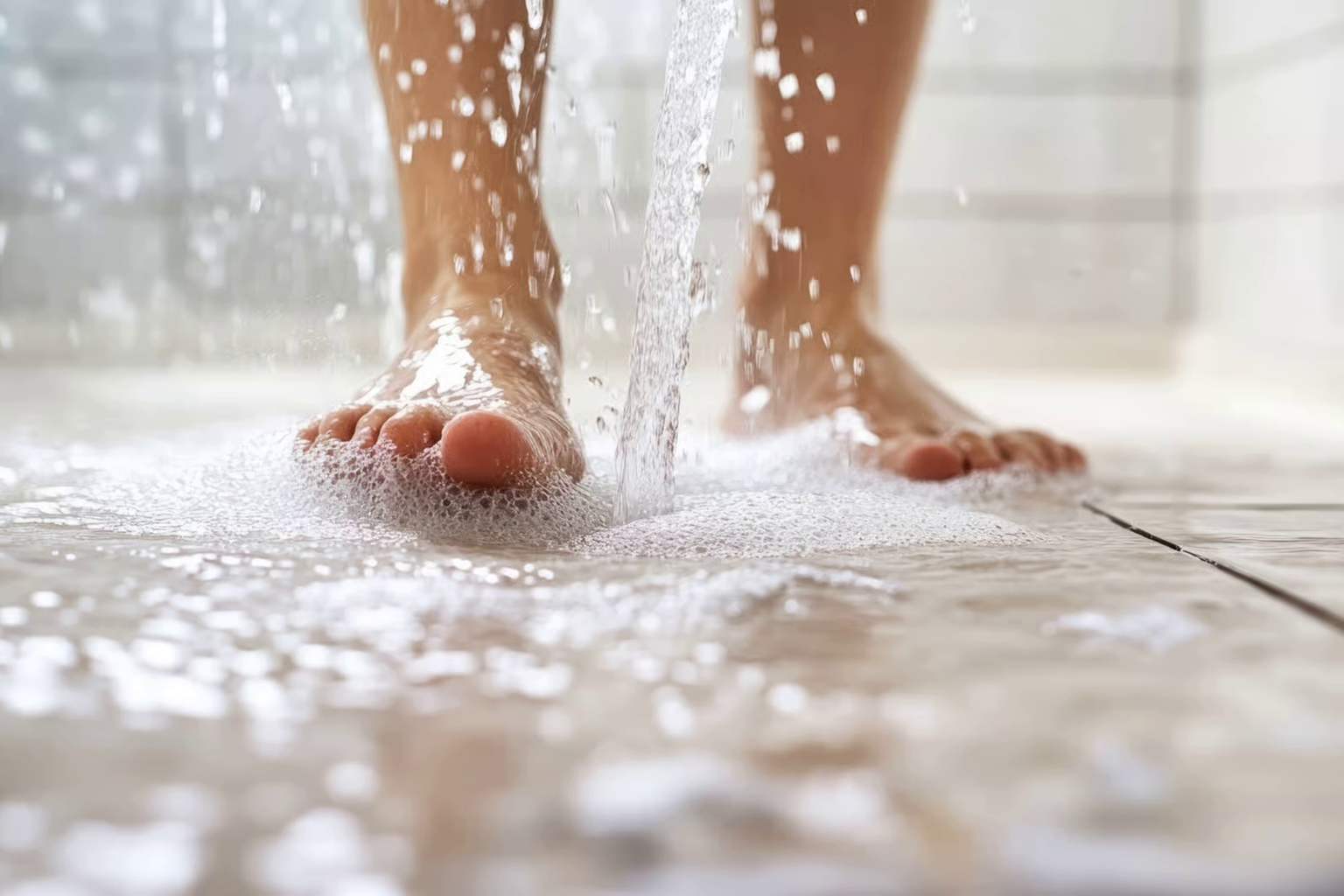Urinating in the shower might seem like a harmless habit—and even an easy way to save water. But did you know there are surprising effects beyond simple hygiene that come with this common practice? Whether you’re curious or cautious, understanding the full picture can help you make smarter choices for your health and the environment.
Unexpected water savings from urinating in the shower
Every time we flush the toilet, about 1.6 gallons (6 liters) of water go down the drain. That adds up fast—skipping just one flush a day by going in the shower could save roughly 580 gallons (2,190 liters) of water a year. It doesn’t stop there. Toilet paper production also has a hidden water cost: it takes approximately 44 gallons (168 liters) of water to produce a single roll. By reducing toilet visits, you indirectly curb this water use too.
A British study even suggests that if many people adopted this habit, the saved water in France alone could fill 26 Olympic-sized swimming pools annually. That’s pretty impressive given how much of our drinking water is used for flushing. Living in a world increasingly aware of drought and water scarcity, small habits can ripple into significant impacts.
Health insights from urologists on urinating in the shower
Dr. David Shusterman, a well-known urologist, points out that generally, urinating in the shower doesn’t present health concerns. In fact, the warm water can help relax your bladder and promote a more complete release. This could potentially reduce bacterial buildup, especially helpful for those prone to urinary tract infections.
However, there’s an important catch: hygiene still matters. It’s essential to clean your intimate areas thoroughly afterward to prevent any lingering urine from causing irritation or infections. And if you have cuts or open wounds on your legs or thighs, you should avoid urinating in the shower, since urine coming into contact with open skin could invite infection.
Risks to pelvic floor muscles and conditioned bladder reflexes
Sabrina Fajau, better known as Princess Pelvis, warns about potential downsides to the habit. Urinating while standing might prevent the necessary relaxation of the pelvic floor muscles. Over time, this can lead to weakness and reduced muscle control.
Another sneaky issue is the conditioned reflex triggered by the sound of running water. Our brains often associate that familiar rush with needing to urinate, sometimes causing frequent and inconvenient urges. Fajau recommends adopting a squatting position before water falls in the shower to help maintain better pelvic muscle health and control.
I remember trying this change myself—I was surprised how much more mindful I became about my bathroom habits. It’s easy to overlook how simple daily practices shape our bodies and routines over time.
The sound-triggered bladder reflex is something many people might not even realize they experience. It’s like Pavlovian conditioning but for your bathroom breaks!
Understanding these connections helps you preserve your bladder health and prevent unneeded discomfort.
At first glance, urinating in the shower looks like a quick and eco-friendly trick. Yet, respecting these medical insights can ensure you enjoy benefits without compromising your wellbeing. By keeping things clean, avoiding open wounds, and adjusting posture, you pave the way for healthier habits and smarter water use.
What do you think about this: have you ever tried this practice or considered its implications? Share your thoughts and stories below—let’s get the conversation flowing! Your perspective could help others rethink their routines and maybe even save water together.

It’s a sign of politely .. being considerate to a fellow human being. It’s a very wholesome behavior. O